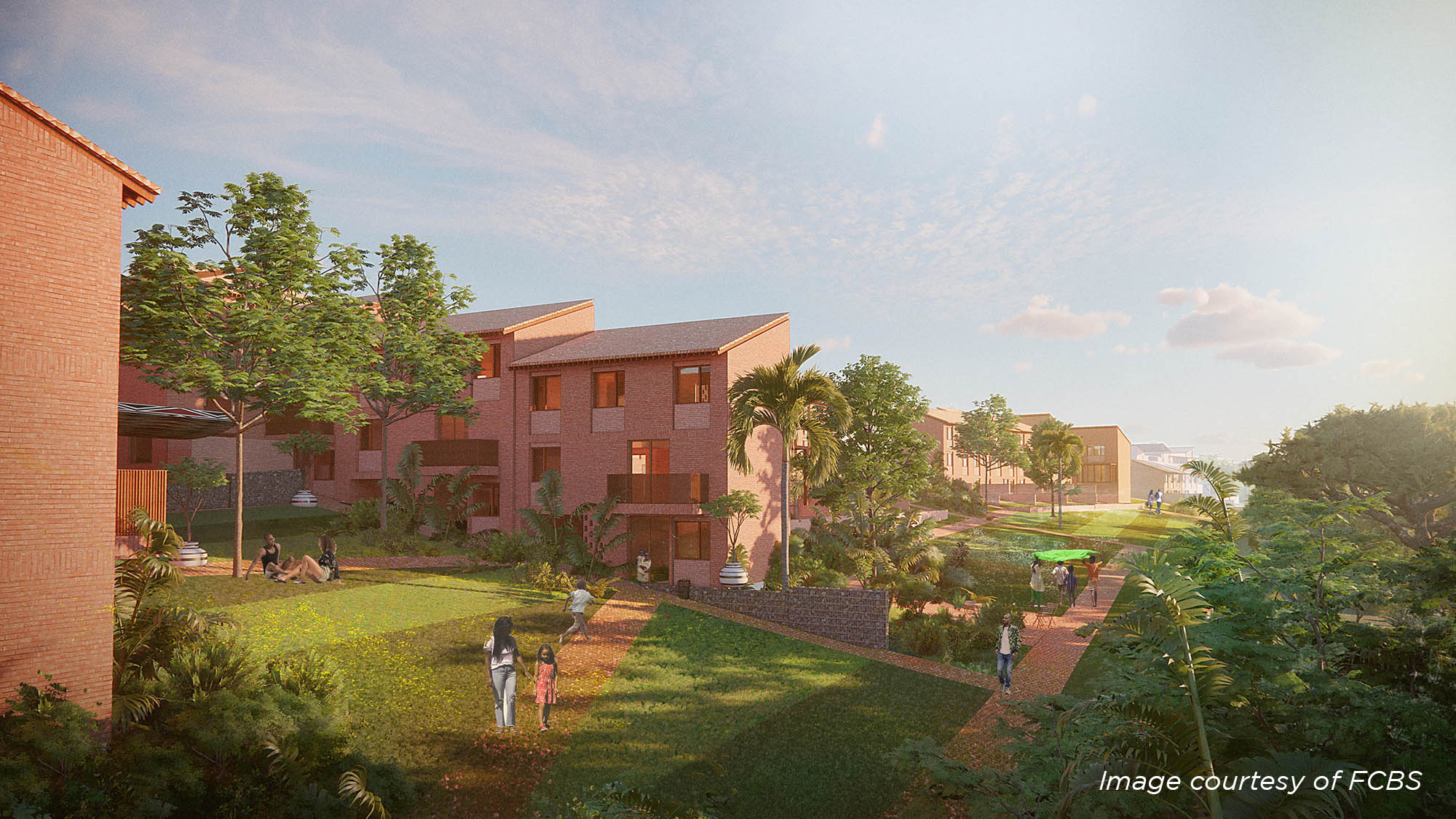The growing use of the EDGE green building certification system continues to hold the key to a lower carbon and resource-efficient future for construction in Africa.
FBW is a long-standing champion of EDGE and most of the projects it is involved in now require the certification, including the development of the trailblazing Kigali Green City project in the Rwandan capital and a major office project in Kampala, Uganda.
The company is also calling for more focus on skills training and job creation to deliver more locally sourced products created out of natural and traditional materials.
It has welcomed recent moves by the International Finance Corporation (IFC), the largest global development institution focused on the private sector in developing countries, to further promote the EDGE system in Kenya.
IFC has announced it is partnering with Africa Logistics Properties (ALP), a specialist in property investment and development in Kenya, to promote the EDGE programme, which is based on the World Bank’s Excellence in Design for Greater Efficiencies standards.
EDGE is a green building standard and international certification system by IFC that stipulates measurable factors have to be considered in ‘green buildings’.
Developers who meet the criteria are awarded an EDGE certification that indicates water and energy resources that have been saved.
Antje Eckoldt is an FBW Group director and its Kenya country manager as well as the group’s EDGE expert. She said: “The further emphasis and focus IFC is placing on the promotion of EDGE in Kenya is a welcome move.
“The green certification system is already making a real difference in terms of savings in energy, water and embodied energy in materials.
“Most of the projects we are involved in, from housing projects to office developments, require it. It is playing a key role in delivering a low carbon, resource efficient future for communities across Africa.”
She added: “Delivering sustainable and affordable housing is also an important issue for Africa. These projects need a focus on skills training and large-scale job creation, for example in local brick and compressed block making and sustainably sourced timber construction.
“Artisans should be trained in low carbon finishes such as earth/ lime plaster or floor finishes. All these materials are fully circular.
“This green, circular economy approach to building is vital for Africa’s sustainable future. It must remain high on the agenda as nations look to meet the challenges of increasing urbanisation and population growth. We also have to become increasingly ‘climate smart’ in our approach to development.”
FBW Group has always been committed to sustainability and ecological considerations in its building designs.
During more than a quarter of a century of its operations, it has gained a wealth of practical experience in the design and delivery of sustainable building solutions and green principles continue to form an integral part of the design thinking that underlies all its work.
As part of its continuing commitment to ‘build green’ and to advocate for green buildings it is also a member of the Kenyan Green Building Society, part of the World Green Building Council.
Sustainability is at the heart of FBW’s approach to design work. In its masterplan for the University of Global Health Equity (UGHE) campus expansion in Rwanda natural lighting and ventilation have been harnessed wherever possible, as well as the use of solar heating and lighting technologies.
FBW’s work to create a ‘green’ campus for the International School of Kigali (ISK) in Rwanda is another example of that sustainable approach – from its natural ventilation to the products used in construction.
The project will use locally made, eco-friendly brickwork, fired through a low embodied carbon technique.
FBW Group has also been appointed to the international team tasked with delivering Kigali Green City. The transformational development is being hailed as is an important milestone on the road to creating more sustainable green cities in the region and worldwide.
Its aim is to demonstrate that building green is “a necessity, not a luxury” and it will feature a range of initiatives, including the use renewable energy, rainwater harvesting, wastewater management, recycling and reuse of water and sustainable transport solutions.
The development will also deliver much needed quality homes for people in the lower-to-middle-income brackets.
FBW Group will be the local team on the ground, delivering the key services of architecture, structural and civil engineering and mechanical, electrical and plumbing engineering (MEP).
The firm’s initial roles will include overseeing local compliance, suggestions on local material supply, environmental standards and stakeholder engagement and submissions.
Antje said: “The pilot project will lay the ground for the design of quality, low-carbon and resource efficient housing types suitable for various sites and density conditions and point the way towards the future for sustainable urban development.
“We continue to explore local low-carbon construction methods and materials and how they can be used to their maximum affect.
“We are also looking at ideas relating to urban farming and a green economy all based on low tech processes, on waste reduction and on circular economy principles.”
FBW Group chief managing director Paul Moores says the construction sector in Africa must focus on the use of more reliable, locally sourced products created out of natural and traditional materials as well recycling products on a larger scale.
He said: “Businesses want to do the right thing when it comes to the environment and the construction sector must rise to that challenge. That means a continuing focus on sustainable design and construction strategies.”

